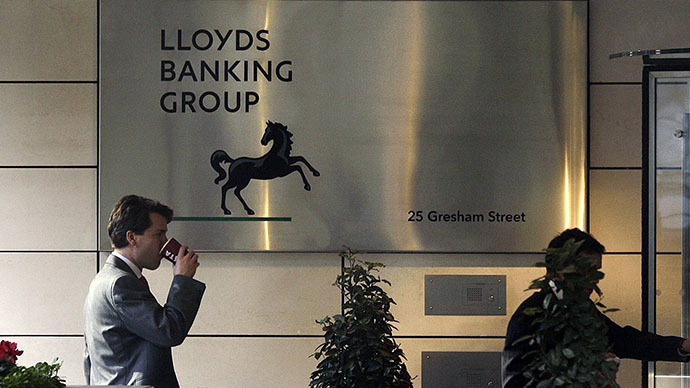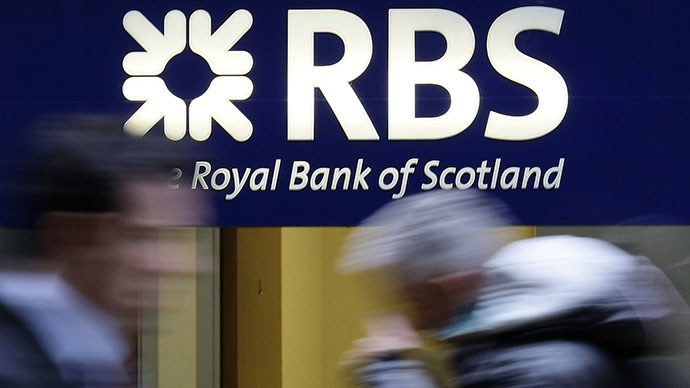Partly-nationalized British banks Lloyds and Royal Bank of Scotland (RBS) both say they would relocate their headquarters to London if Scots vote for independence on September 18.
Recent polls indicating pro-union and independence camps are neck and neck have rocked British financial markets and pushed the pound to its lowest value since November.
RBS, which has been based in Scotland since 1727, claimed it would be “necessary to re-domicile the bank’s holding company” because of “a number of material uncertainties arising from the Scottish referendum vote.”
In a statement, the bank claimed independence could have a bearing on “credit ratings, and the fiscal, monetary, legal and regulatory landscape to which it is subject.
“For this reason, RBS has undertaken contingency planning for the possible business implications of a ‘yes’ vote. RBS believes that this is the responsible and prudent thing to do and something that its customers, staff and shareholders would expect it to do.”

In a letter to its 16,000 Scottish-based staff, the bank’s chief executive said it had no intention to move operations or jobs. A Treasury source told the BBC that it had discussed the plans with RBS.
Lloyds Banking Group said it could also shift some of its business from Scotland. However, it characterized the plan as a legal procedure and said “there would be no immediate changes or issues.”
The Treasury welcomed the move, which would ensure the bank is protected by the Bank of England and shore up its credit rating.
“Lloyds Banking Group has seen an increased level of enquiries from our customers, colleagues and other stakeholders about our plans post the Scottish referendum,” a statement from Lloyds read.
“While the scale of potential change is currently unclear, we have contingency plans in place which include the establishment of new legal entities in England. This is a legal procedure and there would be no immediate changes or issues which could affect our business or our customers.
“There will be a period between the referendum and the implementation of separation, should a ‘yes’ vote be successful, that we believe is sufficient to take any necessary action.”
Both banks received 65 billion pounds of taxpayer bailouts in 2008 and 2009. Lloyds, in which the UK government has a 25 percent stake, owns Bank of Scotland and Halifax.
‘Not a decision made lightly’
Insurance and pensions firm Standard Life also said on Wednesday it was “planning for new regulated companies in England to which we could transfer parts of our business if there was a need to do so.”
Speaking on Newsnight, Treasury Chief Secretary Danny Alexander said such a move by Standard Life “is not some sort of decision that they make lightly.
“They make it on the basis that they regard that as the best way to protect their customers under the new circumstances.
“When we hear Lloyds and other banks making clear that they would have to do the same, again, that is not something that they say lightly. They say it having thought about it, having talked to their board and to the senior people in those companies.”
Banking giant UBS has warned there is a “significant risk” of bank deposits fleeing Scotland within days of a ‘yes’ vote.
Scotland’s First Minister Alex Salmond described reports of banks moving out of Scotland as “nonsense” and “scaremongering.”
His thoughts were echoed by Martin Gilbert, chief executive of Scotland’s largest fund manager, Aberdeen Asset Management, who said, “Most sensible people now accept that Scotland would be prosperous with either outcome in the current constitutional debate.”
Should Scots vote for independence, Britain and Scotland would engage in an 18-month period of negotiation on core strategic and economic issues such as oil reserves in the North Sea, Scotland’s deployment of the British pound, Britain’s controversial nuclear submarine base in Faslane, and an independent Scotland’s relationship with the European Union.

